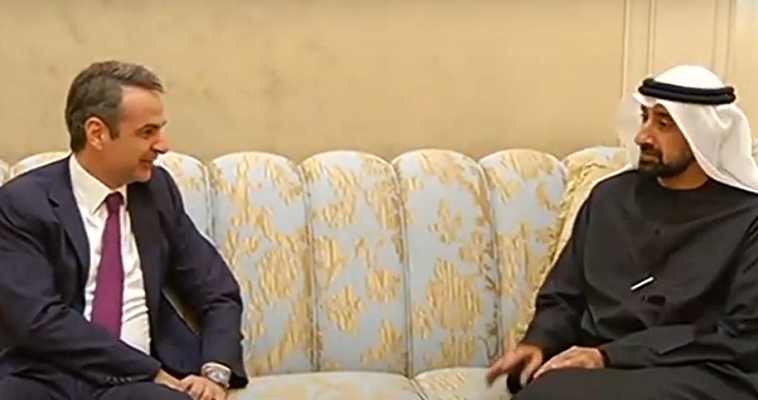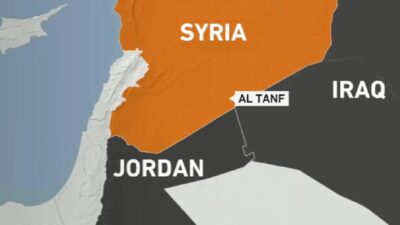How can Greece put pressure on Sisi – The key role of the UAE
18/06/2020
The Greek political system has now realized that the annulment of the Ankara-Tripoli memorandum and the inactivation of the Turkish military bridgehead in western Libya have to pass through the strengthening of Athens’ ties with Cairo, or rather through their joint action. It is clear that Athens alone is unable to cancel Ankara’s actions in the Mediterranean.
As a result, even the “middle ground” of partial delimitation of the maritime zones with Egypt has been put on the table, with some “discounts” on the part of Athens (the extent of the islands’ influence in the EEZ), in order to overcome the objections of Cairo. Unfortunately, the sentence contains two errors and a delusion. On the one hand, Athens will accept discounts on international law, which may undermine its bargaining power, in the near future, with Turkey.
On the other hand, Greece will prove (for the umpteenth time) to be benevolent towards Egypt, without any tangible benefit, such as Sisi’s clear commitment to Mitsotakis that Egypt will be directly involved in the Libyan crisis against the Sarraj government backed by Turkey. Finally, the chronic quagmire in the negotiations with Cairo is not due to its greed for more EEZs. It is mainly due to its phobic insecurity.
Sisi’s fears
Sisi does not want to be involved in the long-running Greek-Turkish conflict, although Erdogan is undermining the foundations of his regime. And he is undermining them though his campaign in western Libya in favor of Sarraj and his open support for the Muslim Brotherhood within Egypt. So far, Sisi has reacted feebly with “blank” declarations in favor of Syrian Kurds and Egyptian Navy exercises around Libya.
Even when Erdogan and Sarraj rudely rejected Cairo’s proposal for an immediate ceasefire and resumption of the dialogue, Sisi did not dare to openly intervene in eastern Libya in favor of Haftar. To the chagrin of those in Athens who thought that Sisi and Haftar would bail Greece out of the difficult position. Cairo urged Russia to intervene to prevent the fall of Sirte and its oil to the hands of the Turks.
So how can Greece force Sisi to overcome his phobias? “Spare the rod and spoil the child,” says a biblical proverb. The only way for Greece is to apply pressure to the Sisi regime, taking advantage of the dire situation in which Egypt has found itself. The former leader of the Arab world is facing a “perfect storm”: Turkey’s intervention in Libya, the dispute with Ethiopia over the Nile, the uncontrolled pandemic of Covid-19, the jihadist guerrilla movement in the Sinai and, of course, the negotiations with the IMF in an effort to find a way out of the acute economic crisis.
The key role of the Emirates
In order to survive, Sisi is in dire need of immediate and generous assistance from the Gulf monarchies. This is the key factor. Can Greece “recruit” its newly acquired ally in the Gulf, the United Arab Emirates? The answer is yes, because both countries share the same concerns about the spread of Turkey and Qatar in the Middle East and the Eastern Mediterranean, but also about the security of Egypt, the status of which is less stable than it seems.
On 16 June, Cairo applied to Emirati banks for a new $ 1 billion credit line. According to well-informed experts, however, Egypt’s demands for financial aid will soon exceed $ five billion). In other words, the Sisi regime is highly dependent on the will of the Emirates.
According to information, Abu Dhabi is ready to use the pressure lever it has, if it has Athens as a companion on this path. For years, Egypt has been financially and diplomatically supported by the Emirates and Greece, without offering anything in return. In reality, then, it will not be something new or risky if Abu Dhabi sets conditions on funding for the Sisi regime. It will neither be novel and risky even if Athens at the same time clarifies to Cairo that they will either really cooperate in dealing with Turkey or the experiment of the tripartite cooperation (with the Republic of Cyprus) will be shelved.
Combined pressure
In conclusion, Athens must adopt a new clear policy towards Cairo, instead of pleading for a demarcation agreement, even by discussing irrational Egyptian demands. In fact, if it expands and deepens its relations with the small but rich and mainly determined Emirates, the pressure on the Sisi regime will be combined and it will become suffocating, forcing it to make decisions and act.
This path, after all, has already been opened by Turkey with the alliance it concluded with Qatar. Their example clearly shows what a NATO member state can achieve when it has secured the financial support of a Gulf monarchy (or two) and, of course, when the necessary political will and determination exists. The truth is that all of the above is very out of the familiar diplomatic path for both Foreign Minister Dendias (he is going to Cairo today (18 June) for difficult negotiations) and for the bureaucracy of the Greek Foreign Ministry.
The times, however, times are impatient and, therefore, require novelty in both political thought and political practice. The crucial question, then, is whether the Mitsotakis government and, more broadly, the Greek political system can finally think “out of the box”during such a critical moment We will soon find out…





